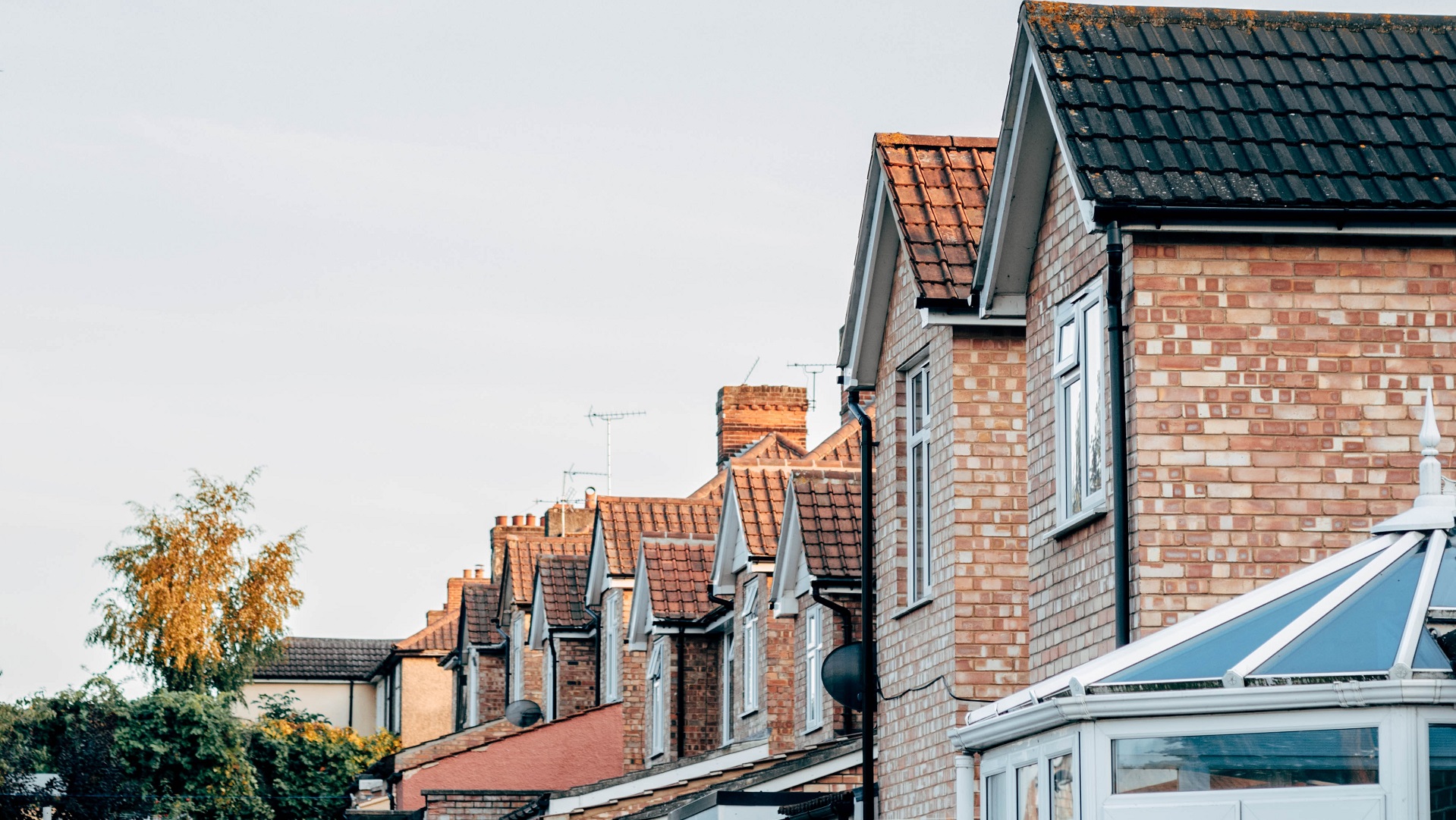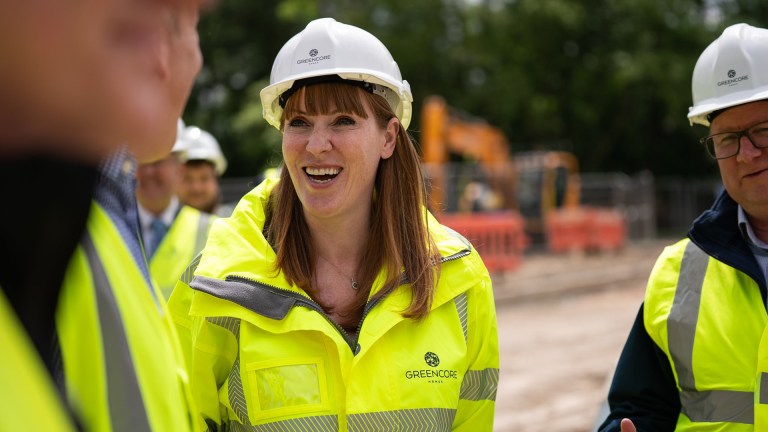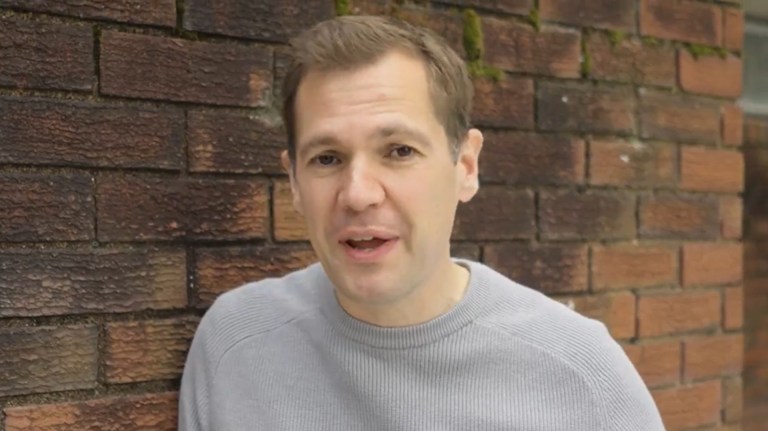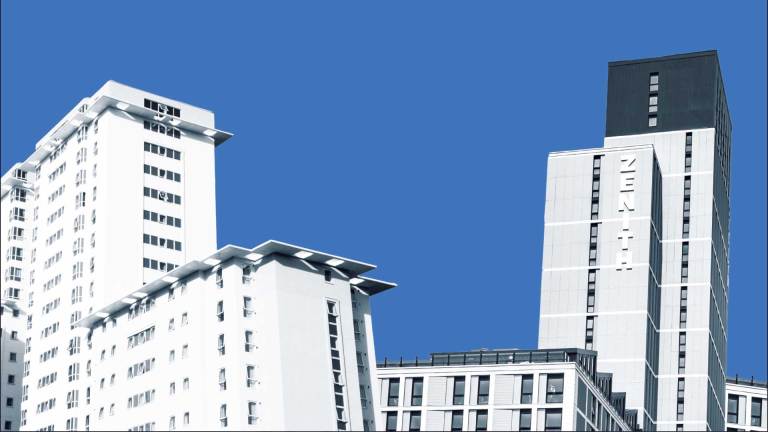In fact, Halifax recorded a fourth straight month of house price rises in January 2024, up 1.3% or £3,700 on average to £291,029 on average. The revival comes as the Bank of England has opted to freeze mortgage rates after sustained hikes.
But the affordability gap is still seeing people who want to get on the housing ladder and buy a home left disappointed. Halifax’s average price is still £40,000 higher than levels house-hunters would be looking to pay pre-pandemic.
The ONS found full-time employees in England would have to spend 8.3 times their annual earnings to buy a home in 2022 while people in Wales would have to spend 6.2 times their yearly salary.
Homes have become considerably less affordable in the last 25 years. Back in 1997 people living in 89% of local authorities could pay less than five times their annual salary to own a home. In 2022 that was true in just 7% of areas.
The Big Issue is calling on the Prime Minister to make sure everyone can afford to stay in their homes and pay for the essentials through the End Housing Insecurity Now campaign. Will you join us and sign the petition?
Advertising helps fund Big Issue’s mission to end poverty
Why are house prices so high?
The housing crisis is nothing new in the UK. Demand has outstripped supply for decades but the disruption of the pandemic has exacerbated the issue with record-high price rises following Covid restrictions.
Former chancellor Rishi Sunak introduced a stamp duty holiday to support the property market hit by lockdowns in 2020. That stimulated demand with buyers rushing to complete deals before the tax break ended in March 2021.
The move was a major contributing factor to the widest gap between supply and demand in the market since 2013, according to the Royal Institution of Chartered Surveyors. A further stamp duty cut was introduced by Liz Truss in September 2022 before Jeremy Hunt said the cut will end in March 2025.
Since the pandemic began, a lack of affordable homes and rising demand has seen prices skyrocket.
By August 2022, a typical UK property hit a record high cost of £293,992, according to analysis from Halifax.
That proved to be the peak with economic disruption starting to hit the house market shortly after.
Advertising helps fund Big Issue’s mission to end poverty
The Bank of England has been raising interest rates in recent months in a bid to cap inflation, which had soared beyond 10% until falling to 3.9% more recently.
The disastrous mini-budget from Liz Truss and Kwasi Kwarteng in September 2022 also took its toll.
But not every commentator agrees that a shortage of affordable homes is the true driver of inflated house prices.
A report released by Positive Money at the end of March 2022 instead blamed price surges on the transformation of homes into financial assets and the loosening of financial regulation and monetary policy over the last few decades. Wider policy changes such as tax incentives, the right to buy scheme and the deregulation of the private rental market also played a role, according to Positive Money’s senior economist Danisha Kazi.
Positive Money’s YouGov poll said 54% of British homeowners would be happy for their home not to rise in value if it meant prices remained more affordable for others.
“The prevalent narrative that house prices are out of reach for so many due to a shortage of homes fails to explain the explosive growth of recent decades,” said Kazi.
Advertising helps fund Big Issue’s mission to end poverty
“Governments have failed to deal with the housing crisis because of a pervasive view that the public, who are majority homeowners, would be against policies that restrict house price growth. However, the evidence suggests that most people, including homeowners, support a fairer approach to housing which seeks to stabilise prices rather than letting them inflate endlessly.”
Will house prices go down in 2024?
The current economic climate is finally catching up with the housing market.
With no immediate sign of an end to the cost of living crisis and interest rates forecast to rise further, house prices are starting to fall.
But that’s not all good news for people looking to get on the housing ladder.
Rising interest rates mean significant increases in mortgages and that is already deterring people from buying properties.
The BoE reported that there were 47,400 mortgage approvals for house purchases in the UK in October 2023. That’s an increase on September which saw approvals drop to the lowest point in 2023.
Advertising helps fund Big Issue’s mission to end poverty
Meanwhile, the number of transactions remains down year-on-year, HMRC said. There were 90,920 residential transactions in October 2023, according to the government body’s non-seasonally adjusted estimate. That’s 17% lower than October 2022 and 2% lower than September 2023.
The central bank has been stress testing banks to see if they can weather an economic crisis that could see interest rates hit 6% and inflation reach 17%. Part of that annual stress test also included house prices and the BoE is testing banks’ capabilities to deal with a worst-case scenario of a 31% fall in house prices.
Nationwide reported that prices rose 0.7% month-on-month in January. That meant annually house prices were down 0.2%.
Robert Gardner, Nationwide’s chief economist, said: “There have been some encouraging signs for potential buyers recently with mortgage rates continuing to trend down. This follows a shift in view amongst investors around the future path of bank rate, with investors becoming more optimistic that the Bank of England will lower rates in the years ahead.
“These shifts are important as this led to a decline in the longer-term interest rates that underpin mortgage pricing around the turn of the year.”
But the current state of the housing market is still leaving home ownership out of each for many.
Advertising helps fund Big Issue’s mission to end poverty
“Raising a deposit also remains a major challenge for those wanting to buy, with a 20% deposit on a typical first-time buyer home equating to around 105% of average annual gross income – down from the all-time high of 116% recorded in 2022, but still close to the pre-financial crisis level of 108%.
“This reflects that house prices are still very high relative to earnings, with the house price to earnings ratio standing at 5.2 at the end of 2023, well above the long run average of 3.9.”
Meanwhile, Halifax’s 1.3% rise in house prices in January but annual increases to 2.5%, the highest annual growth since a year earlier.
However, Kim Kinnaird, the director of Halifax Mortgages, said house prices may continue to fall for the next 12 months and beyond.
“Looking ahead, affordability challenges are likely to remain and further modest falls should not be ruled out, against a backdrop of broader uncertainty in the economic environment,” said Kinnaird.
Rightmove’s house price index tracks asking prices when properties come on the market for sale, which means it acts as an early indicator of changes in the housing market.
Advertising helps fund Big Issue’s mission to end poverty
January saw new seller asking prices increase by 1.3% – though overall average prices were 0.&% lower than the previous year.
Rightmove’s director of property science Tim Bannister said: “More new sellers are now entering the market, and with more confident pricing.
“While the increased level of buyer activity that we’re also seeing may justify some of this increased pricing confidence from sellers, it’s important that sellers who are keen to find a buyer don’t get carried away with new year enthusiasm when setting their price expectations. Elevated mortgage rates and the wider cost-of-living squeeze are still limiting buyers’ spending power.”
Zoopla said house prices have fallen 0.8% in the last year and will still be capped by a greater supply of homes on the market, sellers cutting asking prices and mortgage refinancing in 2024.
Zoopla’s executive director Richard Donnell said: “Last year, mortgage rates fell to 4.2% in the first 3 months of the year, which supported sales volumes and led to only modest price falls.
We expect current mortgage rates to have the same effect this year, supporting sales volumes rather than hugely impacting house prices.”
Advertising helps fund Big Issue’s mission to end poverty










